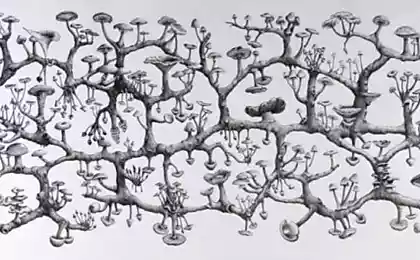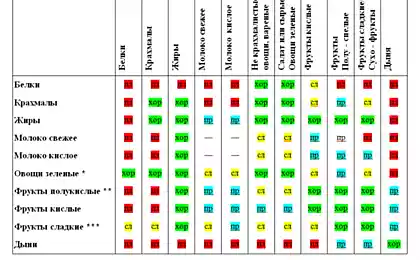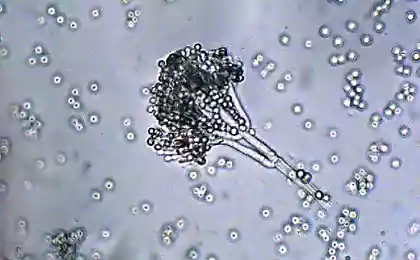448
Manganese: strong nerves, good mood
In the human body manganese is essential for the formation and metabolism of vitamin C, it is an integral part of enzyme systems that affects the metabolism of proteins, along with Nickel and zinc improve the absorption of lipids in atherosclerosis. Manganese in nature is 0.1% of the mass of the Earth's crust. The contents of manganese in plants – 0,001–0,01% (by weight).
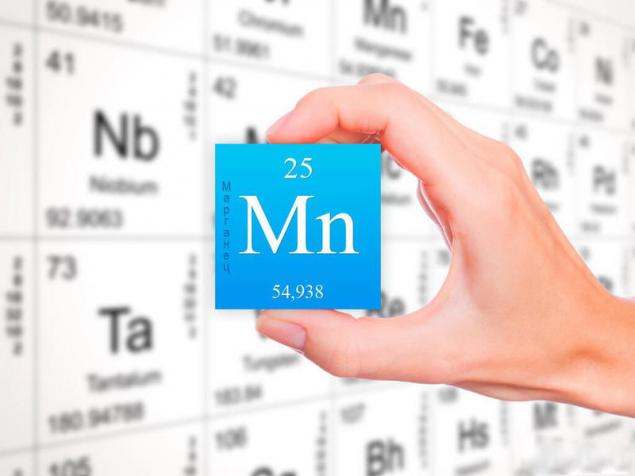
The daily requirement of the human body depends on its workforce and is from 2 to 5 mg. Level, leading to a deficit estimated at 1 mg/day. People engaged in heavy physical labor, need more manganese. Absorption of manganese from the diet is 3-5%. The absorption of manganese occurs throughout the small intestine. Manganese quickly leaves the bloodstream and in the tissues is mainly present in the mitochondria of cells ("power stations" of the cell, which produces energy). In high quantities in liver, tubular bones, pancreas, kidneys. Most of the manganese in the human body contain bones and liver.
Upon absorption of manganese competes with iron and cobalt: one of these metals, if the level is high, can exhibit an inhibitory effect on absorption of other. Manganese is an activator of many enzymes. An important role in the concentration and excretion of manganese belongs to the liver and pancreas. Manganese is almost entirely excreted in the feces, and sweat and urine. The biological role in the human body, Manganese has a significant impact on the livelihoods of living organisms. It is an essential micronutrient and is a component of numerous enzymes in the body performing numerous functions, actively influence the metabolism of proteins, carbohydrates and fats. Important also considered the ability of manganese to enhance insulin action and maintain a certain level of cholesterol in the blood. In the presence of manganese fuller body uses fats.
The basic biological functions of manganese:
An obstacle to the assimilation of manganese is excessive intake of phosphorus and calcium. Causes of manganese deficiency in the body: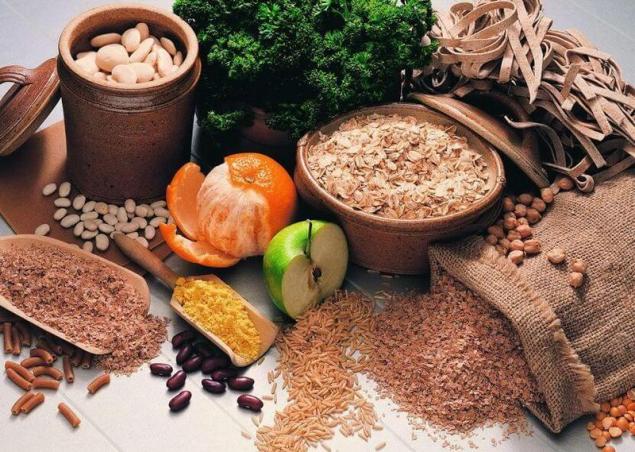
Source: www.pharmacognosy.com.ua/index.php/makro-i-mikro-chudesa/marganets-krepriye-nervy-khorosheje-nastroenije

The daily requirement of the human body depends on its workforce and is from 2 to 5 mg. Level, leading to a deficit estimated at 1 mg/day. People engaged in heavy physical labor, need more manganese. Absorption of manganese from the diet is 3-5%. The absorption of manganese occurs throughout the small intestine. Manganese quickly leaves the bloodstream and in the tissues is mainly present in the mitochondria of cells ("power stations" of the cell, which produces energy). In high quantities in liver, tubular bones, pancreas, kidneys. Most of the manganese in the human body contain bones and liver.
Upon absorption of manganese competes with iron and cobalt: one of these metals, if the level is high, can exhibit an inhibitory effect on absorption of other. Manganese is an activator of many enzymes. An important role in the concentration and excretion of manganese belongs to the liver and pancreas. Manganese is almost entirely excreted in the feces, and sweat and urine. The biological role in the human body, Manganese has a significant impact on the livelihoods of living organisms. It is an essential micronutrient and is a component of numerous enzymes in the body performing numerous functions, actively influence the metabolism of proteins, carbohydrates and fats. Important also considered the ability of manganese to enhance insulin action and maintain a certain level of cholesterol in the blood. In the presence of manganese fuller body uses fats.
The basic biological functions of manganese:
- involved in the synthesis and metabolism of neurotransmitters in the nervous system;
- prevents free–radical oxidation, ensures the stability of the structure of cell membranes;
- ensures normal functioning of muscle tissue;
- involved in the metabolism of thyroid hormones (thyroxine);
- ensures the development of connective tissue, cartilage and bones;
- enhances the hypoglycemic effect of insulin;
- increases glycolytic activity;
- improves utilization of fats;
- reduces the level of lipids in the body;
- counteracts fatty degeneration of the liver;
- involved in the regulation of metabolism of vitamins C, E, b group, choline, copper;
- involved in the provision of full reproductive function;
- necessary for normal growth and development of the organism.
An obstacle to the assimilation of manganese is excessive intake of phosphorus and calcium. Causes of manganese deficiency in the body:
- insufficient intake of outside manganese (inadequate nutrition, consumption reduction products rich in manganese, particularly plant foods);
- excessive intake of phosphates (soda, canned);
- enhanced excretion of manganese under the influence of excess content in the body of calcium, copper and iron;
- reinforced spending manganese as the result of psycho-emotional overload, women in premenopausal and during menopause;
- contamination of the body by various toxins (cesium, vanadium),
- violation of the regulation of metabolism of manganese in the body.
- lower levels of "good" cholesterol in the blood,
- impaired glucose tolerance,
- the rise of overweight, obesity,
- the development of atherosclerosis, hypertension, cardiovascular disorders,
- disruption of pancreatic function,
- deterioration of orientation in space,
- impaired vision and hearing,
- fatigue, weakness, dizziness, irritability,
- bad mood,
- the deterioration of thought processes, ability to make quick decisions
- memory loss,
- violations of contractile muscle function,
- tendency to spasms and convulsions,
- pain in the muscles
- movement disorders, muscle spasms, tremor,
- degenerative changes of joints, propensity for sprains and dislocations,
- osteoporosis in menopause,
- intense sweating,
- thinning tooth enamel,
- disorders of pigmentation of the skin, appearance of fine scaly rash, vitiligo,
- stunted growth of hair and nails,
- disorders of immunity
- dysfunction of the ovaries, early menopause, premature aging,
- infertility, diseases of the breast,
- the risk of cancer.
- lethargy,
- fatigue,
- drowsiness,
- lethargy,
- memory impairment,
- depression,
- abnormalities in muscle tone,
- paresthesia
- the slowness and stiffness,
- gait disturbance,
- the loss of muscle tone
- muscle atrophy,
- the development of parkinsonism
- encephalopathy,
- diffuse nodular lung lesion,
- the development of manganaxinite (inhalation of dust).
- osteoporosis,
- hyperlipidemia
- hypertension,
- for the prevention of cardiovascular diseases
- for improving memory.

- nuts and seeds: peanuts, cashews, sesame seeds, poppy seeds, Brazilian nuts, walnuts, pistachio nuts, and especially macadamia nuts, almonds, walnuts, sunflower seeds, pumpkin seeds, hazelnuts, and chestnuts; seaweed;
- fruits: avocado, apricots, pineapples, bananas, grapes, cranberries, blueberries, strawberries, viburnum, dogwood, cranberry, gooseberry, raspberry, sea buckthorn, Aronia, red currants, black currants, persimmons, blueberries;
- dried fruits: raisins, dried figs, dried apricots, dates, prunes;
- vegetables: ginger, zucchini, cabbage, broccoli, Brussels sprouts, cabbage, red potatoes, carrots, parsnips, squash, chili pepper (chili), parsley, beets, horseradish, garlic;
- herbs: Basil, coriander (cilantro), green onions, leeks, chives, parsley, stalks rhubarb, arugula, lettuce, green celery, dill, green garlic, spinach, sorrel, tarragon;
- cereals and legumes: beans, peas, buckwheat, corn, oats, millet, soft wheat, durum wheat, long grain white rice, round grain rice, white rice, unpolished rice, rice wild, rye, barley and other whole grains, soy, beans, lentils;
- mushrooms: porcini, chanterelle mushrooms;
- egg yolks.
Source: www.pharmacognosy.com.ua/index.php/makro-i-mikro-chudesa/marganets-krepriye-nervy-khorosheje-nastroenije

